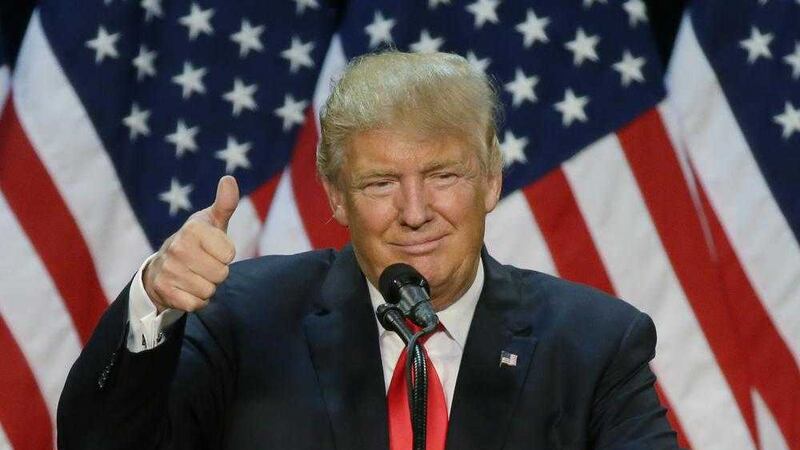HERE'S what I wrote about Donald Trump in this column on February 26.
“There’s still a long way to go, yet what seemed unthinkable a year ago now seems thinkable. Donald Trump could be the Republican candidate. Donald Trump could be president. Donald Trump could be the most powerful political figure in the world. For when someone like Trump admits that he could stand in an American city and open fire on a crowd and lose no votes, then you really have to take him seriously. He has to be taken seriously because the scary thing is, that unless he accidentally mowed down his own supporters, it probably wouldn’t make a difference to his chances. And if this comes down to a straight race between a maverick and a long time elitist insider who isn’t particularly liked even within her own party, then Trump could win.”
Well, that’s exactly what it has come down to: a brutal, bizarre, gladiatorial knockout between someone who thinks that he’s perfectly entitled to buy the Oval Office and someone with a congenital ‘entitlement’ fixation which makes her believe it’s okay for her dollar-eyed chums to buy it for her, instead. This isn’t so much an ideological battle as psychological warfare between two gigantic ids; and, as psychiatrists will tell you, the id is not affected by reality, logic or the everyday world, as it operates within the unconscious part of the mind.
Clinton claims that Trump is not ‘temperamentally suited’ to be president. Unlike her husband, of course, who used the Oval Office for adultery, came within a whisker of impeachment, had to admit that he had serially lied under oath and who now earns millions with industrial scale guff on the after-dinner circuit. So Clinton should be very, very careful before encouraging like for like comparisons between Donald and Bill.
Similarly, she needs to stop the nonsense about “Trump’s finger on the nuclear button.” She knows, as does everyone else, that the president can’t just sit down and push a button (unless, like her in the past, he’s keen to delete millions of emails, of course). The safeguards to prevent that happening are well established. What Trump would do, though, is spook other world leaders, because they wouldn’t have a clue what he would do. And that’s probably no bad thing. Clinton can be read like a book. Her every move is road tested and cleared. Her every ‘principled stance’ has to be prepared and orchestrated by advisers. She is the sum of other people’s number crunching and nuancing. I’m not saying she would be a bad president, I’m just saying it would be a mistake to assume she’s necessarily better than Trump.
I’ve no idea what Trump would be like as president, yet I don’t buy into the notion that he would be some sort of crazy ‘redneck’ who would start wars just for the hell of it. Unpredictability is no bad thing at the highest reaches of political power and the most surprising, unexpected and positive steps are often made by the most unlikely of people. Nixon, Reagan, Johnson and Franklin D Roosevelt, for example, did more in terms of legacy than the likes of the much more ‘liberal’ Carter, Clinton and Obama. Again, I’m not saying Trump would be a good president, I’m just saying it’s a mistake to write him off as utterly incapable of doing something good.
This has probably been the starkest presidential choice that Americans have had to make in my lifetime and I certainly can’t remember a campaign when the candidates not only polarised the country, but also polarised their own party. Under normal circumstances it would have been easy enough to call it for Clinton, yet these are not normal circumstances. Millions of Democrats do not want Clinton; millions of Republicans don’t want Trump. But the anti-Clinton Democrats won’t shift to Trump and the anti-Trump Republicans won’t shift to Clinton.
So it may come down to who makes the biggest gaffe between now and November, or who is hit by the biggest personal scandal. I don’t see what Clinton offers wavering Republicans, or what Trump offers the Democrats who backed Sanders. I don’t see a middle ground upon which they can park themselves, let alone reinvent themselves in a kindlier, less polarising light. The odds are still in Clinton’s favour, but she doesn’t want to run a campaign built on, “I’m not Donald Trump.”
An American friend put it like this: “This is now a glove-weighted boxing match. It will depend which of them can absorb the most punches and remain upright until November 8.” Yep, that’s about right.
And fascinating too—albeit for all the wrong reasons.








